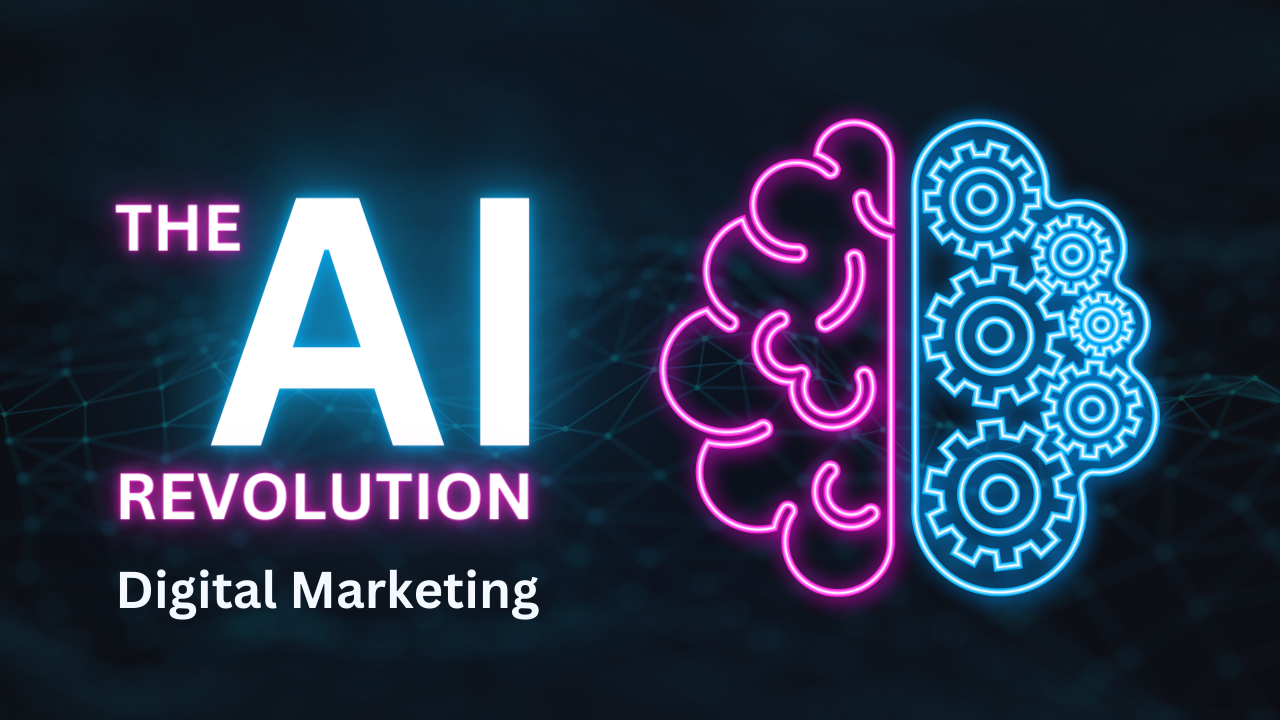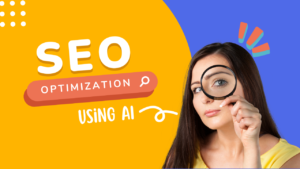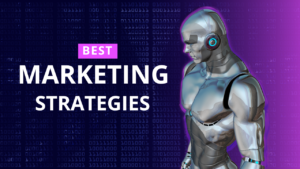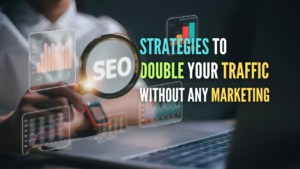
The digital marketing landscape is constantly evolving. In this age of information overload, consumers are bombarded with messages across countless channels. To stay ahead, businesses need to leverage every tool at their disposal. Enter Artificial Intelligence (AI), a powerful technology that’s transforming the way brands connect with their audiences.
Introduction
AI’s ability to analyze vast amounts of data and uncover hidden patterns is revolutionizing digital marketing. Marketers are now wielding AI to achieve several key objectives:
- Understanding Customer Behavior: Traditionally, customer segmentation relied on broad demographics. AI takes this a step further by analyzing user behavior, purchase history, and online interactions to create highly targeted customer profiles. This allows for the development of hyper-personalized marketing campaigns that resonate with specific audience segments.
- Content Creation at Scale: Creating engaging content is a constant battle for marketers. AI can automate content creation tasks such as writing social media posts, email copy, and even generating variations of headlines. While AI may not replace the human touch entirely, it can significantly increase content output and free up time for marketers to focus on strategy.
- Personalization Across Channels: Consumers expect a seamless experience across all touchpoints. AI personalizes the customer journey by tailoring website content, product recommendations, and ad placements based on individual preferences. This one-to-one approach fosters stronger brand loyalty and boosts conversions.
- Predictive Analytics for Informed Decisions: AI can analyze historical data and market trends to predict future customer behavior and campaign performance. This empowers marketers to make data-driven decisions about everything from budget allocation to campaign optimization.
- Chatbots and Conversational Marketing: AI-powered chatbots provide 24/7 customer support, answer frequently asked questions, and even qualify leads. Chatbots can personalize interactions by remembering past conversations and preferences, offering a more human-like experience.
Unlocking the Power of AI
Let’s delve deeper into some specific applications of AI in digital marketing:
- Recommendation Engines: These AI-powered tools analyze purchase history and browsing behavior to recommend relevant products or services. Retailers like Amazon and Netflix use recommendation engines to drive sales and user engagement.
- Dynamic Pricing: AI can analyze market trends, competitor pricing, and customer demand to set optimal prices in real-time. This ensures businesses remain competitive without sacrificing profit margins.
- Programmatic Advertising: AI automates the process of buying and selling advertising space online. With AI in the driver’s seat, marketers can target specific demographics, interests, and behaviors, while optimizing ad spend for maximum reach and ROI.
- SEO Optimization: AI crawls web content and analyzes user behavior to identify relevant keywords and optimize content for search engines. This helps businesses improve their organic search ranking and attract more qualified traffic.
- Content Marketing Optimization: AI can analyze user engagement metrics and audience preferences to identify the type of content that resonates best. This allows marketers to tailor their content strategy to drive desired outcomes, such as brand awareness, lead generation, or sales.
The Future of AI in Marketing
As AI continues to evolve, we can expect even more transformative applications in the marketing sphere. Here are some exciting possibilities:
- Personalized Video Marketing: AI can create targeted video ads on-the-fly, incorporating elements like user demographics, purchase history, and real-time trends.
- AI-powered Influencer Marketing: AI can identify potential brand ambassadors based on audience demographics and brand alignment, making influencer marketing campaigns more targeted and effective.
- Marketing Attribution Modeling: AI can analyze complex data sets to accurately attribute conversions across multiple marketing channels, providing valuable insights for optimizing marketing budgets.
The Human-AI Collaboration
While AI is a powerful tool, it’s important to remember that it doesn’t replace human creativity and strategic thinking. The most successful marketing strategies will be those that leverage the power of AI in conjunction with human expertise. Marketers will need to develop new skills to work effectively alongside AI, such as data analysis, interpretation, and the ability to translate AI insights into actionable marketing strategies.
Ethical Considerations
As with any powerful technology, the use of AI in marketing comes with ethical considerations. Marketers need to ensure transparency in data collection and usage, and avoid creating biased algorithms that perpetuate discrimination. Responsible use of AI is paramount to maintaining consumer trust and building lasting brand loyalty.
Conclusion
The rise of AI is fundamentally altering the digital marketing landscape. By embracing AI and its capabilities, businesses can gain a significant competitive edge. From hyper-personalized experiences to data-driven decision making, AI empowers marketers to connect with audiences on a deeper level and achieve their marketing goals more effectively. The future of digital marketing is intelligent, and AI is at the forefront of this exciting transformation.





